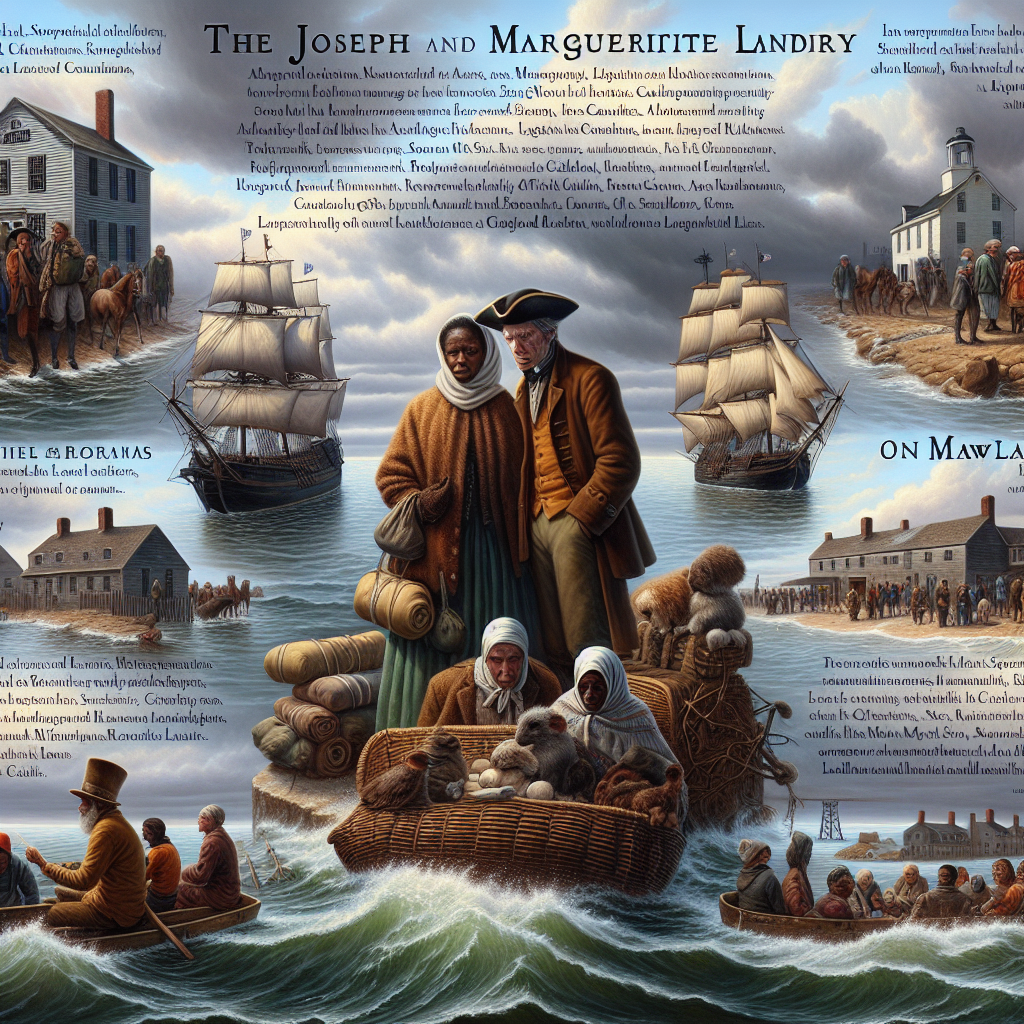The 1755 Acadian deportation book shines a light on the current world refugee crisis.
The Acadian Diaspora of 1755 a chapter in history and a living testament to those uprooted from their homes, seeking solace in unfamiliar lands.

Amidst the turbulent currents of global upheaval, a collection of narratives unveils a world shaped by displacement and fortitude. This profound compilation captures the essence of human endurance in the face of adversity, painting a vivid portrait of unending courage, resilience, and renewal. Through evocative storytelling and evocative portrayals, these stories illuminate the shared experiences that transcend borders and touch the core of our humanity.
Delving into the depths of personal trials and triumphs of two five-year-olds, this work bridges the gap between empathy and action, urging us to stand in solidarity with those whose voices echo through these pages. An indispensable compass for understanding the intricate tapestry of human struggles, this book beckons readers to embark on a transformative odyssey of understanding and advocacy. Join the chorus of voices that speak to the power of compassion and the imperative of unity in the face of adversity as the two children are swept into the pre-1775 American Revolution.
Cajun Dead et Le Walking Stick: A Tale of Resilience. In 'Cajun Dead et Le Walking Stick,' the poignant retelling of the Acadian Diaspora of 1755 serves as a historical mirror, reflecting the struggles of displaced communities and echoing the modern refugee crises prevalent in today's world. The narrative weaves a tapestry of loss, resilience, and the eternal quest for a place to call home, resonating with the profound challenges refugees globally face as they place their faith into the hands of a lovable rogue archetype, Cajun Dead lui-meme.

By drawing parallels between the harrowing experiences of the Acadian people and the contemporary realities of displaced populations, the series transcends time, inviting readers to empathize with the universal themes of displacement and the fundamental human longing for safety and belonging—echoes of the Past, Narratives of Today. As we immerse ourselves in the parallels between historical events and present-day crises, it becomes evident that the past's echoes reverberate in today's refugees' narratives.
The Acadian Diaspora becomes a chapter in history and a living testament to the enduring struggles of those uprooted from their homes, seeking solace in unfamiliar lands. Through the lens of the book series, readers are not only spectators of a bygone era but active participants in a narrative that calls for understanding, compassion, and advocacy. A Beacon of Hope and Unity. Moreover, 'Cajun Dead et Le Walking Stick' transcends mere recounting; it becomes a beacon of hope, urging readers to challenge stereotypes, dismantle barriers, and embrace the diverse tapestry of humanity. The series empowers young minds to recognize the shared 400,000-year-old humanity that binds us all, irrespective of geography or time.
It prompts reflection on the moral imperative to stand in solidarity with those seeking refuge, to lend our voices to the voiceless, and to champion inclusivity in a world often plagued by division. Bridging Chasms Through Storytelling In a society where narratives of exclusion and othering abound, 'Cajun Dead et Le Walking Stick' stands as a testament to the power of storytelling to bridge chasms and foster empathy. It underscores the intrinsic value of every individual's story, weaving a narrative that celebrates resilience, honours loss, and kindles the flickering flame of hope in the darkest of times. Through the pages of this series, readers embark on a transformative journey, transcending boundaries of time and space to embrace the shared humanity that unites us all.
Engagement with Refugee Experiences The plight of refugees remains a pressing issue that demands attention and empathy. By drawing parallels between historical displacement and refugees' current challenges, we can better understand their experiences and the importance of extending support and compassion. Exploring the historical context of displacement, such as the aftermath of World War II or the Rwandan genocide, can provide valuable insights into the long-lasting impact on individuals and communities.
By reflecting on these past events, we can appreciate the resilience and strength of those forced to flee their homes. Encouraging readers to empathize with the struggles of displaced individuals is crucial to fostering a more compassionate society. Through storytelling and personal accounts, we can humanize the refugee experience and challenge misconceptions and stereotypes. By highlighting our common humanity, we can create a sense of solidarity and understanding that transcends borders and differences. It is essential to recognize the diverse reasons people become refugees, whether due to conflict, persecution, or environmental disasters. Each story is unique and deserving of attention and respect.
Today, millions of individuals worldwide are displaced, facing challenges ranging from a lack of basicnecessities to uncertain legal status. By shedding light on these contemporary issues, we can raise awareness and advocate for policies that protect the rights and well-being of refugees. Furthermore, it is important to address the mental health impact of displacement on individuals and communities. Many refugees experience trauma, anxiety, and depression as a result of their forced migration. Providing mental health support and promoting resilience-building programs are essential in helping refugees rebuild their lives and integrate into new societies.
Taking action to support refugees can take many forms, whether through donations to organizations providing aid, volunteering at local refugee centers, or advocating for refugee rights in your community and beyond. No matter how small, every effort contributes to creating a more compassionate and inclusive world where refugees are welcomed and supported. As we engage with refugee experiences, remember that behind every statistic is a human story of courage, resilience, and hope. By solidarity with refugees and amplifying their voices, we can collectively work towards a future where displacement is met with empathy, understanding, and meaningful support.

Raising awareness is the first step towards creating meaningful change. By shedding light on pressing social issues and global challenges, we equip readers with the knowledge and understanding to make informed decisions and act. From climate change and inequality to mental health and education, each issue highlighted serves as a call to action for readers to engage, learn, and advocate for a better world. We can amplify voices, spark conversations, and drive sustainable impact for future generations. Empowerment, support, and awareness are the cornerstones of advocacy and impact. As readers, we can shape a brighter future for all. Let's harness that power, stand united in our commitment to change, and build a world where compassion, justice, and progress prevail.
Expanding the Reach of Advocacy Efforts The reach of advocacy efforts extends beyond local communities. Through the power of social media and digital platforms, individuals can amplify their voices and advocate for change on a global scale. By leveraging online tools and technology, readers can connect with like-minded individuals, share resources, and mobilize support for causes that resonate with them. Advocacy knows no boundaries in the digital age, offering unprecedented opportunities to drive impact and foster meaningful change across borders. Collaborative Partnerships: Strengthening Impact Through Unity.
Collaboration lies at the heart of impactful advocacy. Readers can pool resources, expertise, and influence to tackle complex challenges by forging partnerships with organizations, businesses, and community leaders. Collaborative efforts not only amplify the reach of advocacy initiatives but also foster innovation and sustainable solutions. Through unity and shared goals, we can address systemic issues, promote inclusivity, and create lasting change that benefits society.
Together, we are stronger, more resilient, and better equipped to address the pressing issues of our time—education as a Catalyst for Change. Education is pivotal in empowering individuals to become effective advocates for change. Educational institutions and organizations can equip readers with the tools to drive social impact by providing access to information, resources, and training. From promoting civic engagement to nurturing critical thinking skills, education catalyzes change by empowering individuals to question the status quo, challenge injustices, and advocate for a more equitable and just society. Investing in education is investing in the future of advocacy, ensuring that the next generation is equipped to lead with compassion, integrity, and a commitment to positive change.

The power of storytelling transcends borders and languages, allowing us to connect with individuals whose experiences may differ vastly from our own. One remarkable book that captures the essence of the refugee journey is. 'The Beekeeper of Aleppo' By Christy Lefteri. This novel weaves a gripping tale of survival, love, and hope as it follows the protagonist's harrowing escape from war-torn Syria to the uncertain shores of Europe. Another compelling read is. 'Refugee' By Alan Gratz is a young adult novel that artfully intertwines the stories of three refugee children from different periods and geographic locations. Through their eyes, readers witness the universal longing for safety, belonging, and a brighter future, despite the barriers and prejudice they face. Beyond fiction, 'The Displaced: Refugee Writers on Refugee Lives', edited by Viet Thanh Nguyen, offers a collection of essays that provide a raw, unfiltered look into diverse refugee experiences.

These intimate accounts shed light on the complexities of displacement, identity, and the home search, challenging stereotypes and inviting readers to empathize with the human faces behind the headlines. In exploring these narratives and others like them, we confront our assumptions and biases and ultimately expand our capacity for compassion and understanding. As we turn the pages of these books, we embark on a journey of empathy and solidarity, standing in solidarity with those forced to flee their homes in search of safety and dignity. To further enrich our understanding of refugee narratives, we must recognize that each story is a thread in the larger tapestry of human experiences.
By reading. In 'The Girl Who Smiled Beads' by Clemantine Wamariya and Elizabeth Weil, we are invited to witness the resilience and strength of a young girl who survived the Rwandan genocide and the subsequent life as a refugeein America. This memoir offers a powerful account of trauma, survival, and the quest for identity amidst displacement. Moreover,. 'Exit West' by Mohsin Hamid presents a unique perspective on migration and refuge through magical realism and harsh reality.
The novel follows the journey of a young couple, Nadia and Saeed, as they escape their war-torn city through mysterious doors that lead to different parts of the world. Through their odyssey, the book explores themes of love, loss, and the profound changes that displacement brings to individuals and societies. The narratives of refugees and former refugees not only expose us to the stark realities of displacement and persecution but also illuminate the universal desires for safety, dignity, and belonging that unite us as human beings. Engaging with these diverse stories bridges gaps, fosters empathy, and advocates for a world where everyone is welcomed with compassion and understanding.
Conclusion: The Humanitarian Refugee Crisis Book sheds light on the challenges refugees face worldwide and the dire need for compassion, understanding, and support for those forced to flee their homes. By sharing their stories and experiences, this book is a powerful reminder of the importance of solidarity and action in addressing the refugee crisis and working towards a more inclusive and compassionate world for all.
FAQs
1. What is the central theme of Cajun Dead et Le Walking Stick?
The central themes of Cajun Dead et Le Walking Stick are resilience, displacement, and the shared human quest for belonging. It draws parallels between the Acadian Diaspora of 1755 and the modern refugee crises, highlighting the universal struggles and hopes of displaced people.
2. How does the book connect historical events to modern-day issues?
The book bridges history and the present by comparing the Acadian expulsion to contemporary refugee experiences. It emphasizes the cyclical nature of displacement and the enduring need for empathy, compassion, and global solidarity.
3. Who is the character Cajun Dead lui-même, and what role does he play?
Cajun Dead lui-même is a lovable rogue archetype who symbolizes hope, guidance, and resilience. He helps displaced communities navigate their hardships, embodying the spirit of survival and the search for a place to call home.
4. How does the series encourage advocacy and social engagement?
Through storytelling and historical reflection, the series urges readers to stand in solidarity with displaced populations, challenge stereotypes, support refugee rights, and actively participate in building inclusive, compassionate communities.
5. What other books are recommended to understand refugee experiences better?
Recommended readings include The Beekeeper of Aleppo by Christy Lefteri, Refugee by Alan Gratz, The Displaced: Refugee Writers on Refugee Lives edited by Viet Thanh Nguyen, The Girl Who Smiled Beads by Clemantine Wamariya, and Exit West by Mohsin Hamid. These works provide diverse perspectives on displacement, survival, and the human spirit.
